For all enquiries, please contact the Council Secretariat.
University of Canberra
11 Kirinari Street
Bruce ACT 2617
UC OPEN DAY FEST
Sat 20 Sept, 9am - 3pm
The Legislation Committee is established by the University Council in accordance with section 17 of the University of Canberra Act 1989 (ACT).
The Committee will monitor and make recommendations to the Council in relation to the University’s legislative framework, including the Act, Statutes, Rules and relevant policies.
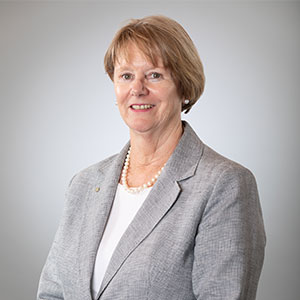
Patricia is Deputy Chancellor, Chair of Council’s Legislation Committee and a member of both the Finance Committee and the Nominations and Senior Appointments Committee.
She is also a Council Member at the Australian Institute of Marine Science. She chairs the Australian Square Kilometre Array Regional Centre and Co-operative Research Australia (formerly the CRC Association). She is a Director of DMTC Ltd.
Prior to her current roles, Patricia had a public sector career spanning over thirty years. Between 2013 and 2018 Patricia was Director-General of IP Australia (the Australian patent and trademark office). Before joining IP Australia, Patricia was a Deputy Secretary in Commonwealth departments responsible for industry, science and innovation from 2004 -2013.
Patricia has a Bachelor of Arts degree, with a major in communication and is a graduate (and current member) of the Australian Institute of Company Directors.
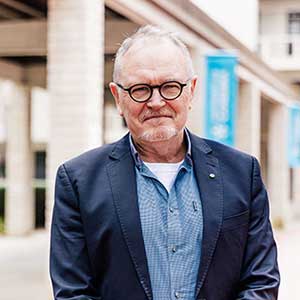
Stephen Parker, Vice-Chancellor in the interim at the University of Canberra (UC) is an Emeritus Professor at the University and an Honorary Professorial Fellow at the Centre for the Study of Higher Education at the University of Melbourne.
His academic leadership roles have included Dean of Law and Senior Deputy Vice-Chancellor at Monash University; and Vice-Chancellor of UC between 2007 and 2016.
Following a short period at The Conversation, developing its international strategy, Stephen was made a senior partner at KPMG Australia in 2017 leading the firm’s work with education clients before becoming KPMG’s global lead focusing on clients in the UK, North America and Middle East until 2021.
Since 2021, Stephen has consulted on higher education matters, including the development of university rankings for the Australian Financial Review (AFR) and assisting the University Chancellors’ Council with its submission to the University Accord process. He has also been practising law with Galbally Parker, solicitors in Melbourne.
Stephen graduated with an Honours in Law from the University of Newcastle upon Tyne and a Doctor of Philosophy from the University of Wales. He has published books, monographs and articles on the court system, legal ethics, family law and children's rights. He has co-edited various collections of essays, including Children, Rights and The Law (with Philip Alston and John Seymour, Clarendon Press) and Legal Ethics and Legal Practice (with Charles Sampford, Clarendon Press).
Stephen was made an Officer of the Order of Australia (AO) as part of the Australia Day Honours in January 2014 for his distinguished service to tertiary education through administrative, academic and representational roles, and as a leader in the growth and development of UC.
Stephen’s varied interests include co-hosting a podcast series, Law in Context, with Emeritus Professor Stephen Bottomley, and supporting a British soccer team which has not won a major trophy since The Beatles were still together but is starting to show a glimmer of improvement.
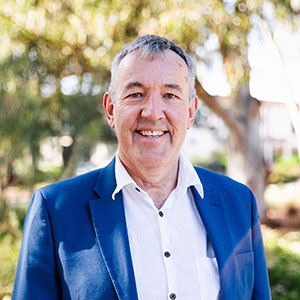
Dr Benedict Sheehy, FAAL, is a Professor of Law and former Head of Canberra Law School at the University of Canberra, Australia. Professor Sheehy was educated in Canada and Australia and holds the following degrees: BTh, MA, JD, MA, LLM and PhD. He is a Fellow of the Australian Academy of Law.
He has worked as a corporate and commercial lawyer, a corporate executive, and an academic in Canada, Mexico and Australia. In Australia, he has held positions at the University of Newcastle and RMIT University in Melbourne prior to coming to the University of Canberra. Throughout his academic career, he has been involved in governance at various levels and made significant, lasting contributions to these institutions in his governance roles.
As an academic, Professor Sheehy is an internationally recognized law scholar. He is highly cited and has published over 100 scholarly articles. His work appears in leading journals around the globe in the disciplines of law, business and economics.
Professor Sheehy has been on the University Council since 2022 as an elected member of the academic staff of the university. In this position, his role is to ensure that the academic voice is heard. As a person committed to the university as a global institution as well as the University of Canberra, Professor Sheehy aims to ensure that the university offers the best it can offer to students, staff and the community at large. He believes that frank, respectful, well-informed discussion that includes a range of views, provides the best chance of good decisions for the organization.
His academic work is readily available on Google Scholar and his professional profile is available via LinkedIn.
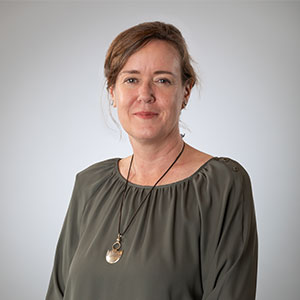
Deborah Poulton is currently working in the field of employee engagement as an Associate Director in the University of Canberra’s People and Diversity team and is a member of the University Council. She wanted to become the professional staff representative on the Council in 2024 as she is committed to protecting an organisational culture rooted in trust and transparency. As she regularly advocates for effective leadership, lifelong learning, and engaging experiences for all UC staff and students, she wanted an opportunity to collaborate with fellow board members to address the challenges and opportunities facing our university and the higher education sector now and in the coming years.
Since March 2015, Deborah has proudly worked at UC, bringing over 20 years of experience in strategic program, project, and communications management across various industries, including Information Technology and Television Broadcasting. With eight years of HR experience in the Higher Education Sector, her natural curiosity, strategic capabilities, and emotional intelligence have enabled her to build strong connections and collaborate effectively with colleagues across faculties and business units.
Deborah’s academic background includes studies in Business Management at the Chartered Management Institute of London and Public Relations at Swinburne University.
Outside of Deborah’s professional role, she is a parent of two tertiary-level young adults and enjoys several volunteering roles in her local community. Since returning to Canberra ten years ago, the university has been a significant part of Deborah’s family’s life, and she enjoys actively contributing to its future growth.
PG Cert CMI (UK), MSP / PRINCE2.
Her professional profile is available via LinkedIn.
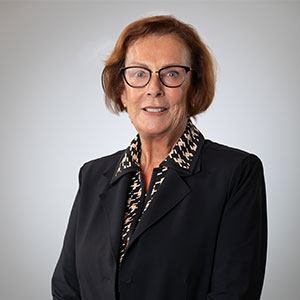
Anne-Marie Lansdown is an experienced executive who has worked in government in the education and research sectors nationally and internationally. As a senior executive in the Education, Industry and Communications departments she developed a deep understanding of higher education and research policy. In the international space, she worked on multiple bilateral science and technology agreements, OECD committees, and UN summits.
Anne-Marie was one of the architects of Australia’s national research infrastructure program, NCRIS, developing three of the national NCRIS roadmaps. These were augmented by the Education Investment Fund and the Super Science funding. The NCRIS is a highly collaborative and distinctively Australian program which maximises Australia’s research infrastructure investments by coordinating open access, targeted specialities, and co-funding across the country.
Over her period in government, she worked with five of the past six Chief Scientists, most recently as Chief of Staff to former Chief Scientist, Dr Alan Finkel.
As Deputy Chief Executive at Universities Australia over seven years, she was responsible for managing the higher education policy agenda for the advocacy group.
She currently sits on the boards of the Australian Research Data Commons (ARDC), Cooperative Research Australia (CRA) and the Australian National Imaging Facility (ANIF). As Chair of the Marine National Facility (MNF), she is able to follow the powerful science being generated by Australia’s marine researchers. She is a graduate of the Australian Institute of Company Directors.
As a lifelong Canberran, she has followed the progress of the University of Canberra over the decades. The university’s important focus on the Canberra community and support for the development of our professional workforce is a source of pride. She is honoured to be part of the University of Canberra enterprise.
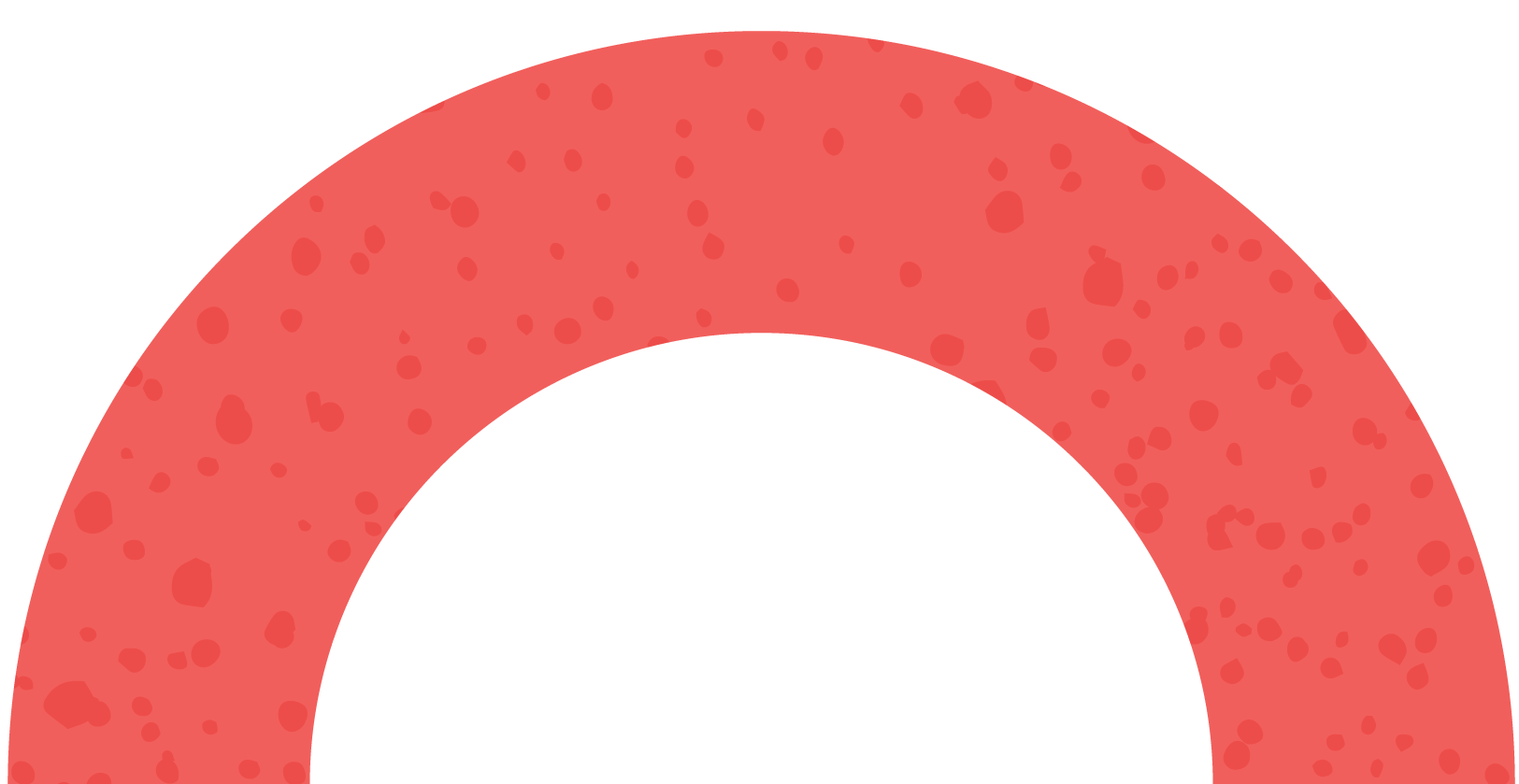
For all enquiries, please contact the Council Secretariat.
University of Canberra
11 Kirinari Street
Bruce ACT 2617
UC acknowledges the Ngunnawal people, traditional custodians of the lands where Bruce campus is situated. We wish to acknowledge and respect their continuing culture and the contribution they make to the life of Canberra and the region. We also acknowledge all other First Nations Peoples on whose lands we gather.
